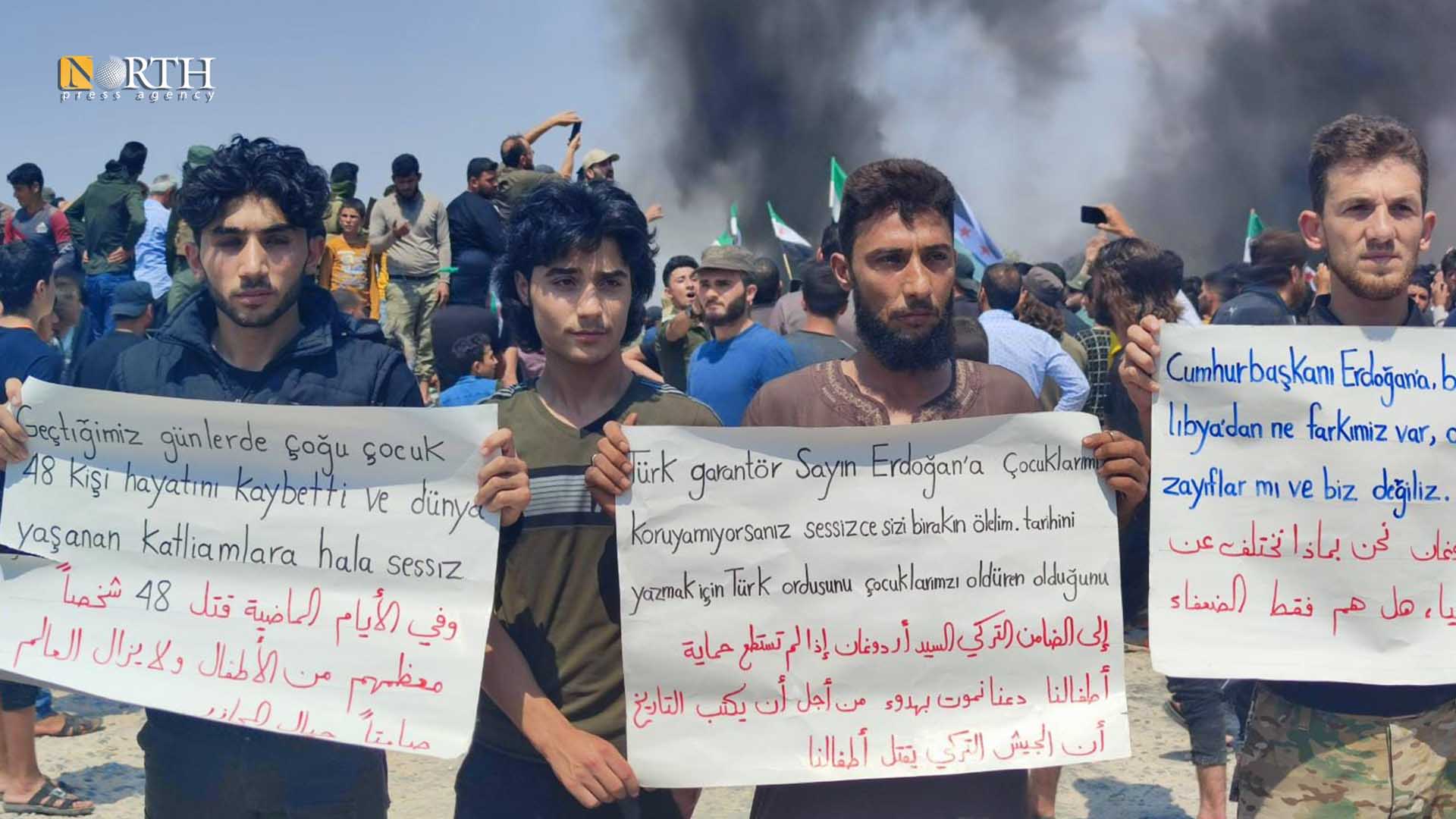
IDLIB, Syria (North Press) – Military and political analysts ruled out the launching of any military operation by the Syrian government forces in the areas of Zawiya Mountain, south of Idlib, in northwestern Syria and in Ghab Plain, west of Hama, adding that the Syrian regime does not have a military capacity that enables it to carry out an operation except with the support of Russia, which they believe will not sever its relationship with Turkey.
The silence of Turkish forces over the recent military escalation of Russia and Syrian government forces in the region, especially since Turkey is one of the guarantors of the de-escalation agreement, generates among the population doubts about its intentions, and fears that the area will be handed over to government forces, as happened previously in northern Hama and southeast Idlib.
For months, the southern countryside of Idlib has been witnessing escalation and mutual bombardment between Russian-backed government forces and Turkish-backed opposition factions, despite the ceasefire agreement signed with Russia since March 5, 2020.
The military escalation in Idlib coincides with talk about the government’s intention to, with Russian support, launch a military operation in Zawiya Mountain and Ghab Plain, amid the spread of dozens of Turkish points in the area.
About two weeks ago, the three guarantor countries (Turkey, Russia, and Iran) held the 16th round of Astana meetings, whose final statement announced the confirmation of the ceasefire, though nothing was followed through on the ground.
Asa’ad al-Zoubi, a military analyst based in the Saudi capital Riyadh, said, “It is currently not possible for Turkey to hand over any part of the Idlib or Aleppo countryside to the Syrian regime and Russia, given that the strategic depth of its national security has become minimal.”
Al-Zoubi indicated, in an exclusive statement to North Press, that the Syrian regime needs an effective force, full coverage, logistical support, and continuous supply to launch a military operation, and this is only available from Russia, “which has absolutely no interest in easing or severing its relations with Turkey.”
Turkey’s interests and silence
During the past days, several villages and towns in Idlib witnessed angry protests denouncing the silence of Turkish forces over the recent military escalation of Russia and Syrian government forces in southern Idlib, which resulted in the killing and wounding of dozens.
The protesters held banners which read, “To the Turkish guarantor, Mr. Erdogan, if you cannot protect our children, let us die quietly so that history will be written that the Turkish army is killing our children,” in addition to other phrases condemning the Turkish silence.
Earlier, Ali al-Amin al-Suwayd, a Syrian writer and anti-government figure, told North Press that Turkey accepted its role as “general anesthetic” for the revolutionary movement in Syria in return for expansionist gains at the expense of Syrian territory.
“Turkey didn’t move, nor object to what is happening in Syria; that is why we describe its action with silence…Turkey is a partner in the shedding of Syrian blood, and whatever it does or does not do is a pursuit of its higher interests,” al-Suwayd added.
On Saturday, the Syrian government bombed the fortifications of the opposition factions near the villages and towns of al-Bara, Deir Sunbul, and Ma’arat al-Na’asan in the southern and northern Idlib countryside with artillery shells and rockets.
In turn, Fateh al-Mubin Operations Room, which includes Hayat Tahrir al-Sham (formerly Jabhat al-Nusra) and Jaysh al-Izza (Army of Glory) along with the National Front for Liberation, said that it targeted military gatherings of government forces near Saraqeb city in the eastern Idlib countryside with mortars and heavy artillery.
Earlier the Syrian opposition faction Quwat Tamouz (July Forces) in Idlib demanded, through a statement, that Turkey stop handing over Syrian lands.
“What matters for Turkey in Idlib is to negotiate in order to ensure its geostrategic and security interests in countering the Kurds, and it will be satisfied with a border strip with a depth of 10 kilometers,” the statement said.
Messages that cost lives
Nasr al-Youssef, a political analyst living in the Russian capital Moscow, ruled out the possibility of Turkish forces would surrender the Zawiya Mountain region to the regime, “because that would cause them to lose their credibility in the minds of the factions that work in coordination with them.”
He considers the current skirmishes as mere messages sent by each of the parties involved in the conflict to express a given party’s position on a particular behavior.
The rapprochement between Moscow and the Syrian Democratic Forces (SDF) in northeast Syria angered Turkey, and the latter proceeded to send a message through its escalation in northeastern Syria, and the rapprochement between Turkey and the new American administration angered Russia, which also proceeded to send a message in the same way, which is the escalation in Idlib.
On Friday, Russian warplanes targeted the armed factions’ positions in the villages and towns of Mashoun, al-Fatirah, Marian, and Kansafra located in the Zawiya Mountain with high-explosive vacuum missiles and eight air strikes, military sources from the opposition told North Press.
Official Jaysh al-Izza spokesman Colonel Mustafa Bakour previously told North Press that the situation in Idlib “will remain as it is and nothing will change on the ground.”
